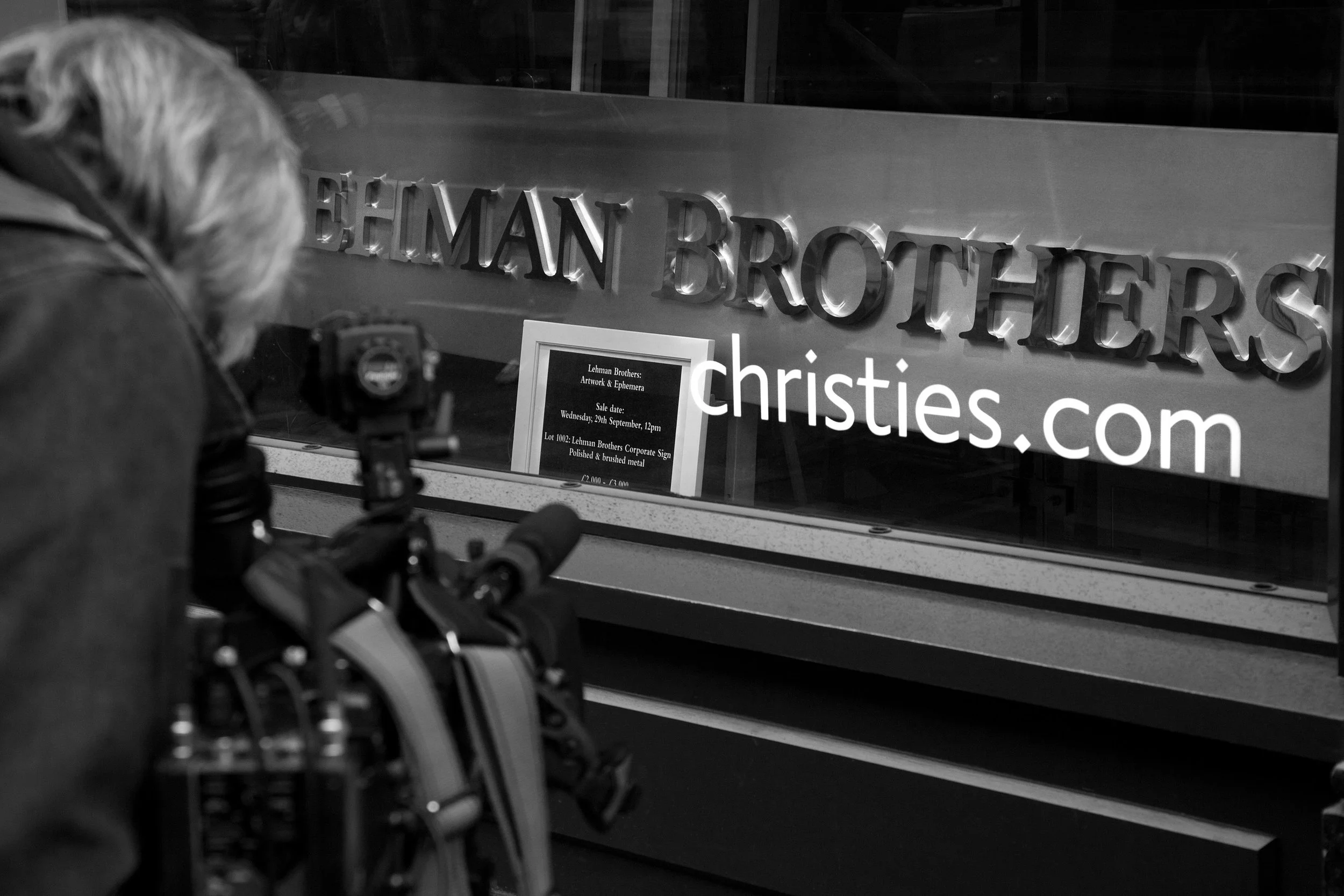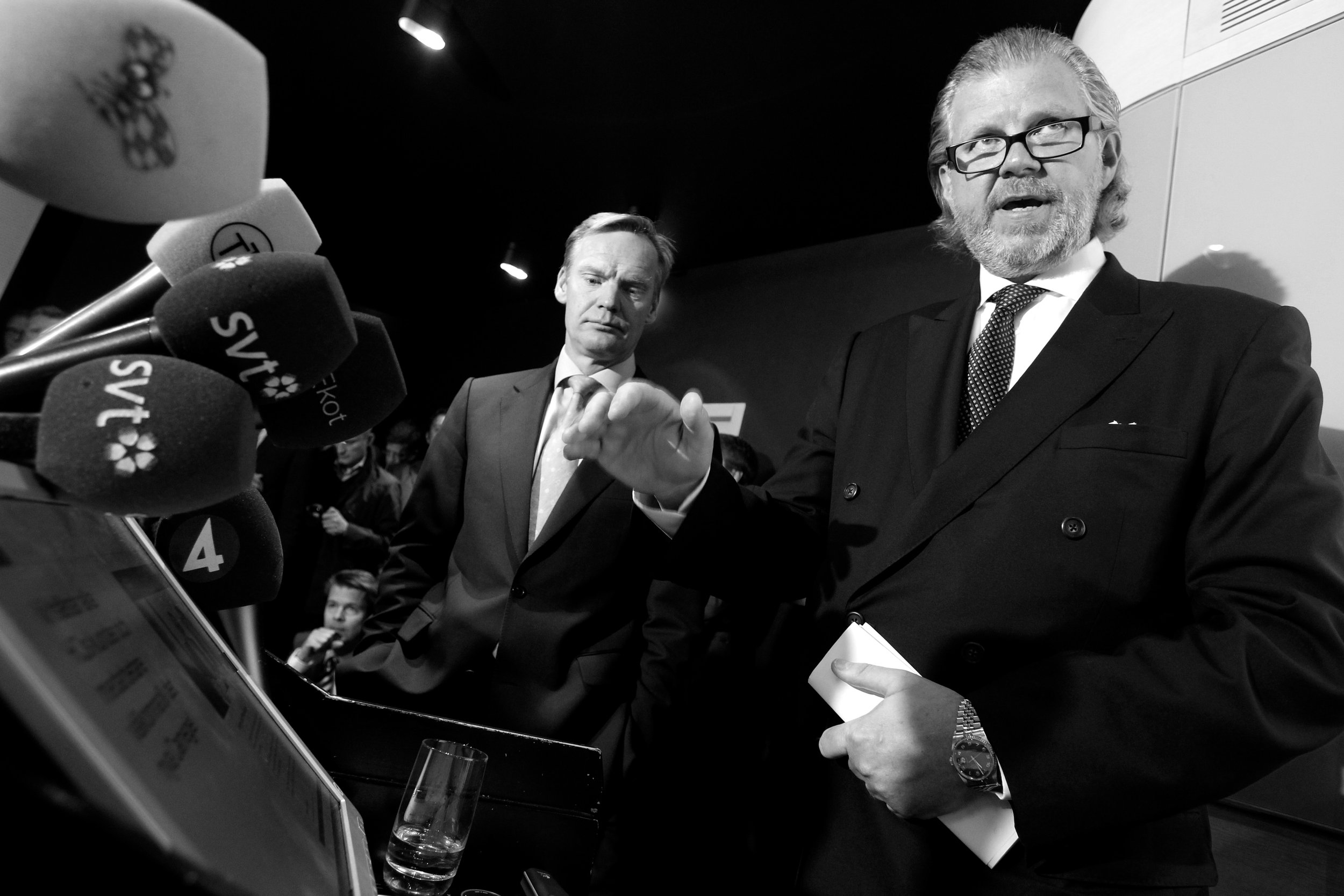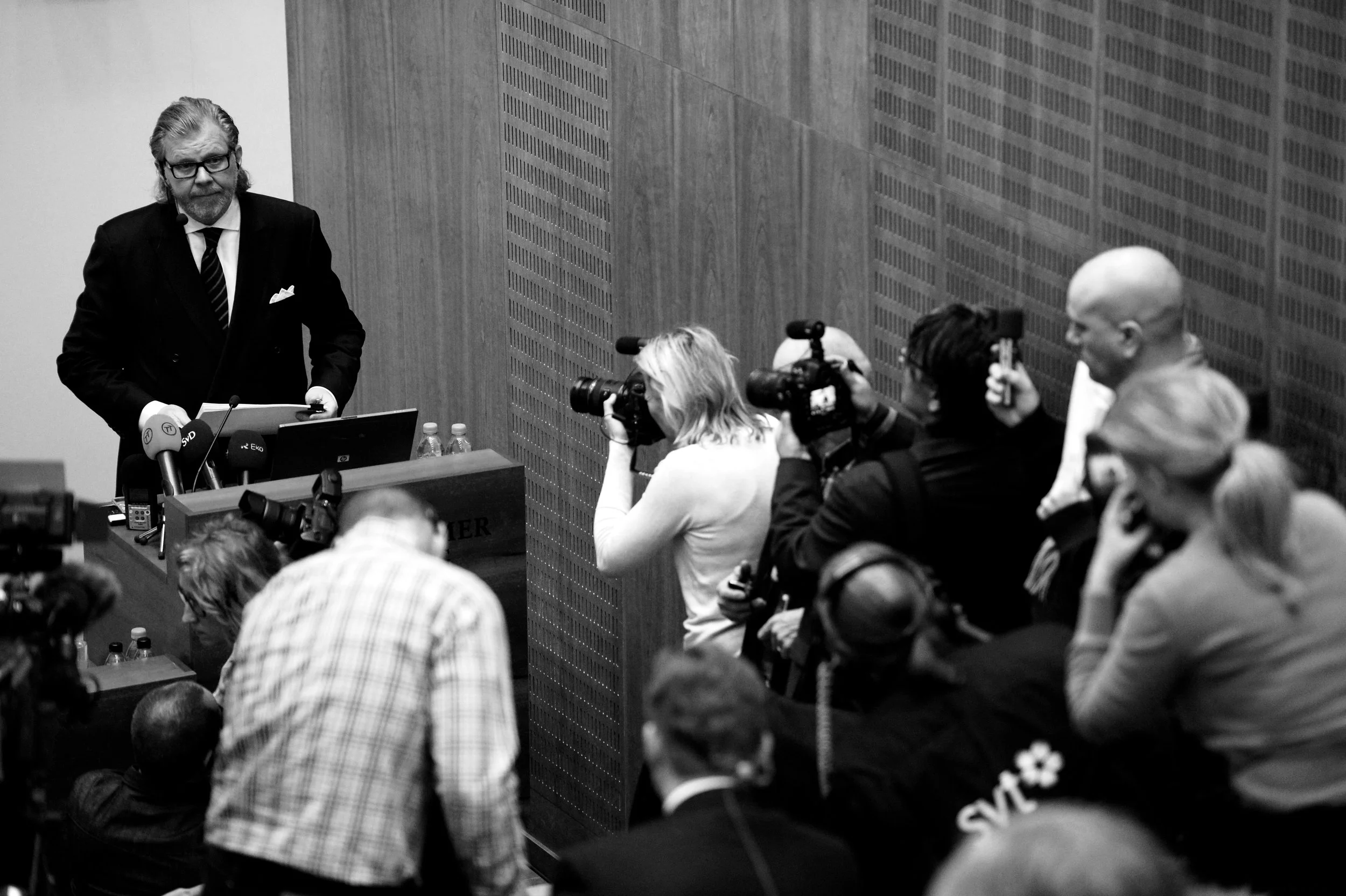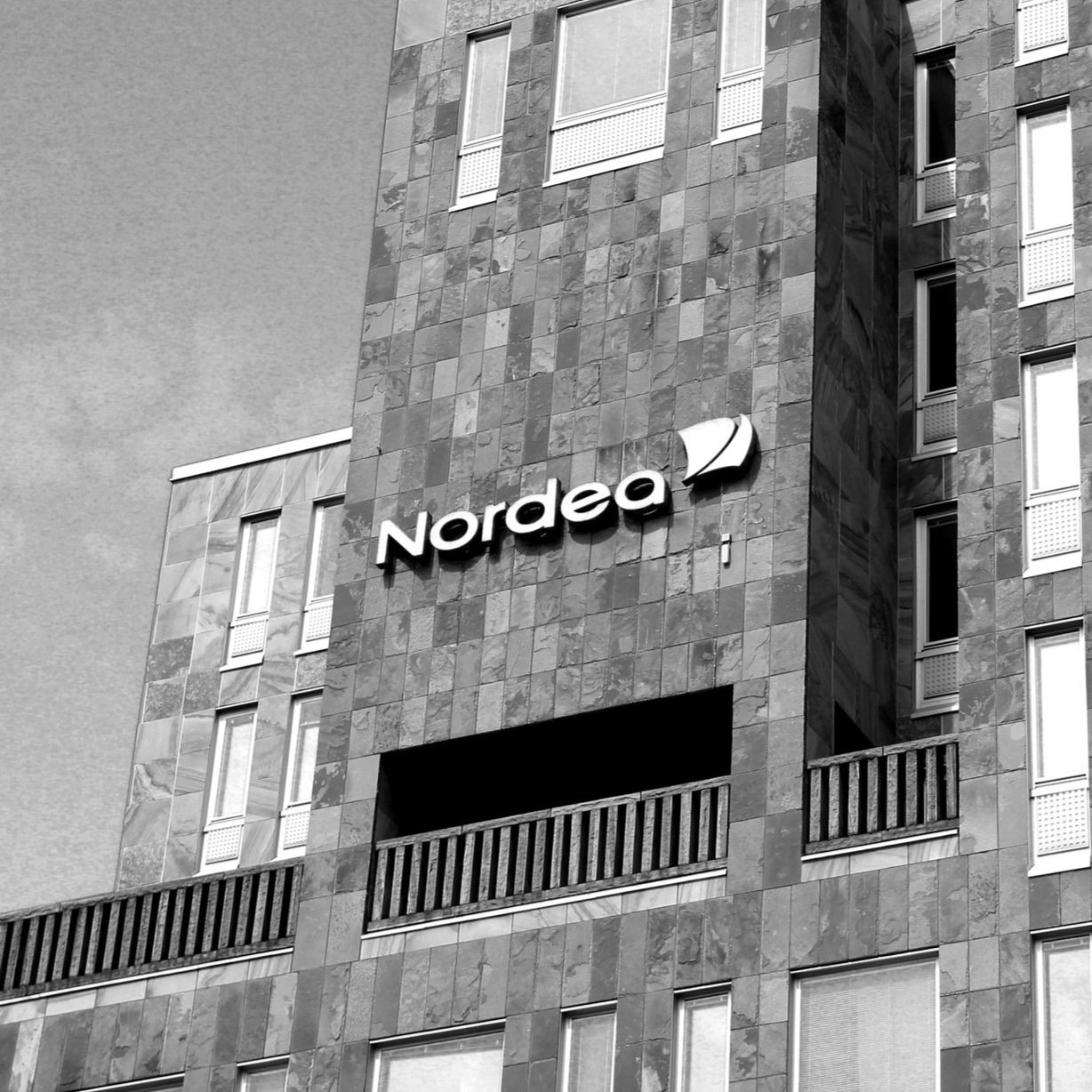Biörn Riese
Throughout a career spanning over four decades, Biörn Riese has supported clients from both the public and private sectors across a range of industries.

Biörn Rieses specializes in corporate governance and sustainability, with a particular focus on anti-corruption and risk management. While many of his assignments are confidential, certain cases, such as the investigations into TeliaSonera’s investments in Uzbekistan and Nordea’s connections to the Panama Papers, have become publicly known.
Throughout a career spanning four decades, Biörn Riese has supported clients from both the public and private sectors across a range of industries. His advisory work has covered business and legal issues under both Swedish and international law, focusing on transactions, restructuring, corporate governance, investigations, risk management, and compliance. Biörn Riese advises corporate boards and organizations and is a frequently sought-after speaker at seminars and programs addressing ethics, sustainability, investigations, and risk management.
About Biörn Riese
Rankings
Throughout his career, Biörn Riese has been ranked as a leader in his respective fields in numerous publications, including Chambers Global, Chambers Europe, IFLR 1000, Legal 500, PLC Which Lawyer, Who is Who Legal, and BG Research.
Selected Board Assignments
(Ongoing unless otherwise indicated)
Disciplinary Committee of the Swedish Bar Association, Member
Supervisory Board of SVCA, Chairman
Swedbank AB, Vice Chair
The Swedish Anti-Corruption Institute,IMM, Member
Stockholm Centre for Commercial Law, Member
Heloos AB, Chairman
Arvid Nordquist H.A.B., Member
Min Stora Dag, Chairman (member 2013–2023, Chairman 2016-2023)
Axis AB, Chairman (2015-2021)
The Mercuri Urval Foundation, Chairman (2016-2022)
Selected Awards
The outside world is anything but static
The business environment, much like business law, is dynamic. After working in the field for more than four decades, Biörn Riese possesses extensive national and international experience during both economic booms and crises. Below lists a selection of pivotal moments in the business world where Biörn Riese has been engaged.
1980
Deregulations and economic boom
The rise of the 1980s began when the Swedish credit market was deregulated in 1985, allowing banks to grant loans without restrictive regulations from the central bank. This, in turn, made it practically possible to finance through loans not just for companies but also for private individuals, leading to lending growth outstripping economic growth. During the 1980s, property values in Stockholm soared by up to 800% and rents by 300%.
Banks also rapidly increased their lending to other financial institutions, which in turn supported the rapidly growing real estate market. Deregulation also enabled Swedish companies to invest in properties abroad at the same price levels, a strategy that proved less wise in the subsequent crisis.
The value of properties, that could be mortgaged for new loans, increased sharply. Banks were also affected. In 1986, Uplandsbanken and Sundsvallsbanken formed Nordbanken, which was later taken over by the state-owned PK-banken. Gota Bank was formed the same year by merging three West Swedish banks. A few years later, large parts of the savings bank movement were merged into Sparbanken Sverige.
”During this time, corporate transfers and comprehensive contracts for plant deliveries marked the activities of many business lawyers, especially in the finance and real estate industries, which saw substantial expansion during this period.”
1990
Property and banking crisis with public sector changes
In August 1990, Iraq's invasion of Kuwait led to a sharp increase in oil prices and interest rates. The unregulated lending, combined with a fixed exchange rate, laid the groundwork for the financial crisis that followed. Finance companies that had lent money for real estate investments encountered difficulties, and in the autumn of 1990, the finance company Nyckeln had to cease payments due to large debts. The crisis then spread to the banks that had financed these companies. In the fall of 1991, both Första Sparbanken and Nordbanken received extensive state financial support to survive. The prices in the commercial real estate market plummeted, and the stock market dropped by 40%, marking the end of that period's speculative economy.
The Swedish krona had long had a fixed exchange rate, and confidence in the Swedish economy was low. The central bank was forced to raise interest rates on several occasions, and in September 1992, the interest rate reached 500%. Following a political turnaround, Sweden applied for membership in the European Community in July 1991, which was part of the government's crisis package to restore confidence in Swedish fiscal policy.
The crisis in the early 1990s led to significant changes within the financial sector. A Bank Support Board was created to support banks at risk of failing due to large credit losses. In December 1992, the Parliament decided on a bank support guarantee to protect the creditors of banks from losses. Through state intervention, Nordbanken avoided bankruptcy by being taken over by the state-owned PK-banken. Other banks, like Gota Bank, went bankrupt and were wound up through special winding-up companies. State support and intervention of 64 billion kronor helped Sweden recover from the crisis in just a few years. At the same time, several state operations were converted into state-owned corporations during the 1990s, part of a broader privatisation and de-monopolisation process across several sectors.
“The crisis in the various banks and state intervention led to much work for business lawyers during this period.”
1995
The Internet and the new economy
The Internet broke through in the mid-1990s. Alan Greenspan, the chairman of the U.S. Federal Reserve, spoke about the new economy. The Internet and mobile telephony radically changed work methods. The era of using correction fluid and faxing documents had ended. During a period in the late 1990s and early 2000s, a number of companies focused on the internet and mobile telephony emerged. The valuation of these companies increased very rapidly, although the underlying business was often unprofitable. Several of these companies were quickly listed on the stock exchange with rising share prices. At the same time, interest in companies that could provide consultancy services within new technological areas and business models increased.
“New technology would change old business models, and IT law became a new field of work for business lawyers. From everyone previously working with real estate, everyone moved to IT law and startups.”
2000
The burst of the Dotcom bubble and increased anglicization of business law
In a time of new economy and new rules, IT companies surged on global stock markets. In the spring of 2000, a dramatic stock market crash occurred, driven by a reevaluation of IT companies, whose shares had been subject to extensive speculation. From peak valuations after sharp value increases in early March 2000, the valuations of these companies quickly collapsed. Shortly thereafter, the values on Nasdaq in the USA also fell, and a new global financial crash, this time linked to IT, was again imminent. Transactions and large outsourcing projects for industrial companies that wanted to outsource responsibility for IT and other operations that were not their core business increased thereafter.
“At the same time, the anglicization of business law increased, especially within M&A and financial law. New strategies such as due diligence and controlled auctions became common, along with dual tracks and VDD.”
2008
Global financial crisis and issues for car manufacturer SAAB
The global financial crisis that began in 2008 had its origins in a housing loan bubble in the USA and was then exacerbated by the collapse of Lehman Brothers. In Sweden, the OMXS30 index of the Stockholm Stock Exchange fell nearly 60% from July 2007 to October 2008. The central bank drastically lowered the repo rate in the summer of 2009 to the lowest level of 0.25%. The real estate market was affected again with falling prices after a significant rise. The housing market experienced a variable mortgage interest rate of 7%. Although several Swedish banks had investments in Lehman instruments, no major Swedish banks then needed to take extraordinary measures.
During the same period, SAAB was affected by the economic crisis. General Motors had owned half of SAAB since the 1990s and had acquired the rest during the 2000s. SAAB had already been suffering losses, and the crisis worsened car sales. In February 2009, SAAB applied for corporate restructuring, with GM as one of the largest creditors. SAAB was later sold to the Dutch company Spyker, but went bankrupt in 2011 after several restructurings.
“The focus and roles of business lawyers change with economic cycles.”
2010
Niche banks with problems
In November 2008, Carnegie Investment Bank AB lost its banking license due to the financial crisis and was deemed systemically important. The Debt Office took over ownership of both the bank and Max Matthiessen according to new legislation and received shares as collateral for support loans. The crash of Lehman Brothers worsened Carnegie's situation. The shares in both companies were subsequently transferred to Altor and Bure.
In August 2010, the Financial Supervisory Authority revoked HQ Bank's charter, leading to its immediate liquidation. HQ Bank was merged with Carnegie Bank, which took over all responsibility. The case was followed by legal processes where the accused were acquitted in a criminal case and a damages claim against board members and auditors was dismissed, as was a claim for the refund of earlier profit distributions.
“The insolvency of niche banks employed many business lawyers.”
2012
SAS is in deeper trouble
From 2009 onwards, SAS implemented various austerity packages, but during the summer of 2012, SAS's crisis deepened further. In November, SAS introduced another austerity package, which among other things meant that the workforce would be reduced by 6000 people and salaries adjusted downwards for pilots and cabin staff. SAS's survival was put to the test in the negotiations that followed between shareholders, financiers, and trade unions. Finally, an agreement was reached between all parties, and the crisis was over – for the time being. It was followed by several more crises and austerity packages for SAS, as well as a further restructuring that began in 2023 and ultimately also involved changes on the ownership side.
Corruption allegations against Telia
In the fall of 2012, the Swedish Public Service Network’s investigative TV show Uppdrag Granskning revealed that Telia had paid billions to the then Uzbek dictator's daughter, Gulnara Karimova. Telia initiated an independent investigation of what had happened. The results of the investigation were presented at a press conference in early 2013.
The investigation could not establish that bribery or violations of money laundering laws had occurred. However, the control over the individuals Telia chose to do business with had been very low. Concurrently with the investigation, the National Unit Against Corruption initiated a preliminary investigation. It led to several representatives of Telia being charged with bribery offenses, but they were acquitted both in the district court and the court of appeal. Telia's settlement with the American authorities amounted to approximately 966 million USD.
“The investigation leveled serious criticism at deficiencies in several levels within Telia. The anti-corruption policy that existed had not been implemented sufficiently.”
2016
The Panama Papers and allegations of money laundering
In the spring of 2016, the Swedish Public Service Network’s investigative TV show Uppdrag Granskning revealed a severe tax planning scheme involving customers of Nordea. A leak from an international law firm in Panama City included customer information and email messages. Nordea, particularly in Luxembourg, had clients linked to the law firm. The bank initiated an investigation during the summer of 2016. The leak, known as the Panama Papers, was followed by others such as the Paradise Papers, the Russian Laundromat, and the Azeri Laundromat linked to other banks.
After the Danske Bank money laundering scandal in 2019, other banks' potential problems were questioned. After being named in the media, Swedbank commissioned an external investigation. The Financial Supervisory Authority and American authorities began investigations, and Swedbank received a fine of 4 billion kronor after the Financial Supervisory Authority's investigation. The American investigations are still ongoing.
2017
Jurie is founded
After 33 years at what would become the largest law firm in the Nordics, Biörn Riese started "the smallest law firm in the Nordics" to continue with independent senior legal and strategic advice within corporate governance and sustainability, with a special focus on anti-corruption and risk management.
His operations cover areas where experience and independence are crucial elements. When appropriate, Jurie collaborates with additional expertise as required by the assignment.
”The smallest law firm in the Nordics”
Jurie
Phone: +46 (0)8 345 000
Email: info@jurie.se
Address: Västra Trädgårdsgatan 15,
SE- 111 53 Stockholm
Registered office: Stockholm
Reg.No.: 556954-3605
Jurie Advokat Aktiebolag
Org. Nr. 556954-3605
Biörn Riese
Phone: +46 (0)70 595 12 47
Email: biorn.riese@jurie.se
Address: Västra Trädgårdsgatan 15,
SE- 111 53 Stockholm









